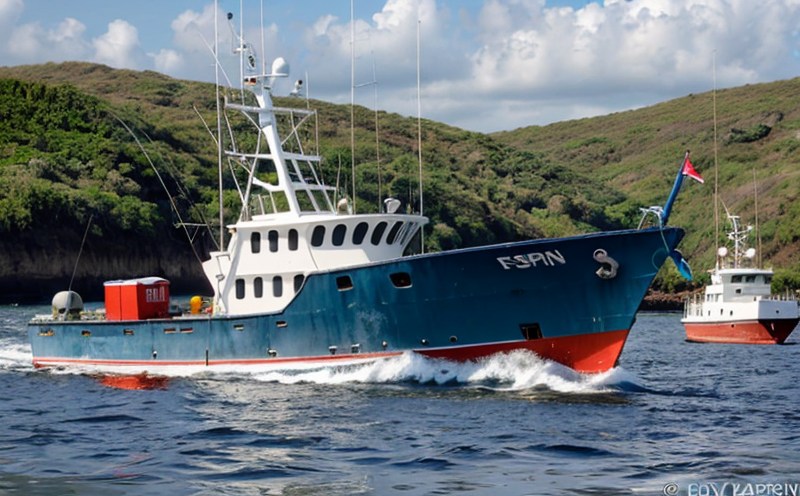Fishing vessel inspection
Fishing vessels play a crucial role in global maritime operations, contributing significantly to food security and economic stability. Ensuring these vessels meet stringent safety standards is paramount for both the crew's well-being and operational efficiency. Our comprehensive fishing vessel inspection service encompasses a range of assessments tailored to the unique challenges faced by this sector.
The primary focus of our inspections includes structural integrity, mechanical performance, and compliance with international maritime regulations such as ISO 19738:2006 and IEC 60945. These standards ensure that fishing vessels are not only safe but also optimized for sustainability and efficiency.
Our team of experts conducts thorough inspections using advanced instrumentation, including ultrasonic testing, radiography, and eddy current testing. These methods allow us to identify potential issues before they escalate into critical failures. Our process begins with a detailed review of the vessel's specifications and operational history, followed by on-site assessments that cover:
- Structural evaluations using non-destructive testing techniques.
- Mechanical stress analysis to ensure material integrity.
- Evaluation of critical components such as engines, hulls, and safety systems.
- Verification against compliance with international standards like ISO 19738:2006 for fishery products quality assurance in processing establishments.
We also offer comprehensive reporting that outlines our findings along with recommendations for necessary repairs or upgrades. Compliance with these regulations is essential not only to avoid legal penalties but also to ensure the long-term reliability and safety of your fleet.
Our service ensures peace of mind by providing detailed insights into each vessel's condition, enabling proactive maintenance strategies that extend asset life and reduce downtime. By adhering to rigorous inspection protocols, we help safeguard lives at sea while supporting sustainable fishing practices.
Why Choose This Test
- Comprehensive Compliance: Ensures full adherence to international maritime standards enhancing safety and operational efficiency.
- Expertise and Experience: Leveraging decades of experience in marine inspection, our team provides unparalleled expertise.
- Advanced Technology: Utilizing state-of-the-art non-destructive testing methods for precise evaluations.
- Proactive Maintenance: Identifies potential issues early to prevent costly repairs and extend asset life.
Quality and Reliability Assurance
The quality of a fishing vessel directly impacts its operational reliability, safety, and overall performance. Our rigorous inspection process ensures that every aspect of the vessel meets stringent criteria set by international standards. This commitment to excellence is reflected in our meticulous approach to:
- Structural integrity checks using advanced non-destructive testing techniques.
- Mechanical stress analysis for critical components.
- Evaluating safety systems and emergency procedures.
- Verifying compliance with ISO 19738:2006 and other relevant maritime standards.
Our inspections go beyond mere certification; they are designed to provide actionable insights that improve vessel performance over its entire lifecycle. By focusing on reliability, we help reduce maintenance costs, enhance safety measures, and ensure regulatory compliance.
Environmental and Sustainability Contributions
- Eco-friendly Processes: Our inspections prioritize the use of non-destructive testing methods to minimize environmental impact while ensuring vessel integrity.
- Sustainable Materials: Recommendations for using sustainable materials in maintenance and repair processes.
- Energy Efficiency: Identifying areas where energy consumption can be optimized, contributing to reduced carbon footprint.
In addition to these practical measures, our service contributes significantly to environmental sustainability by promoting responsible resource use. By ensuring that fishing vessels operate efficiently and safely, we help mitigate the risks associated with overfishing and unsustainable practices. Our approach aligns with global initiatives aimed at preserving marine ecosystems for future generations.





